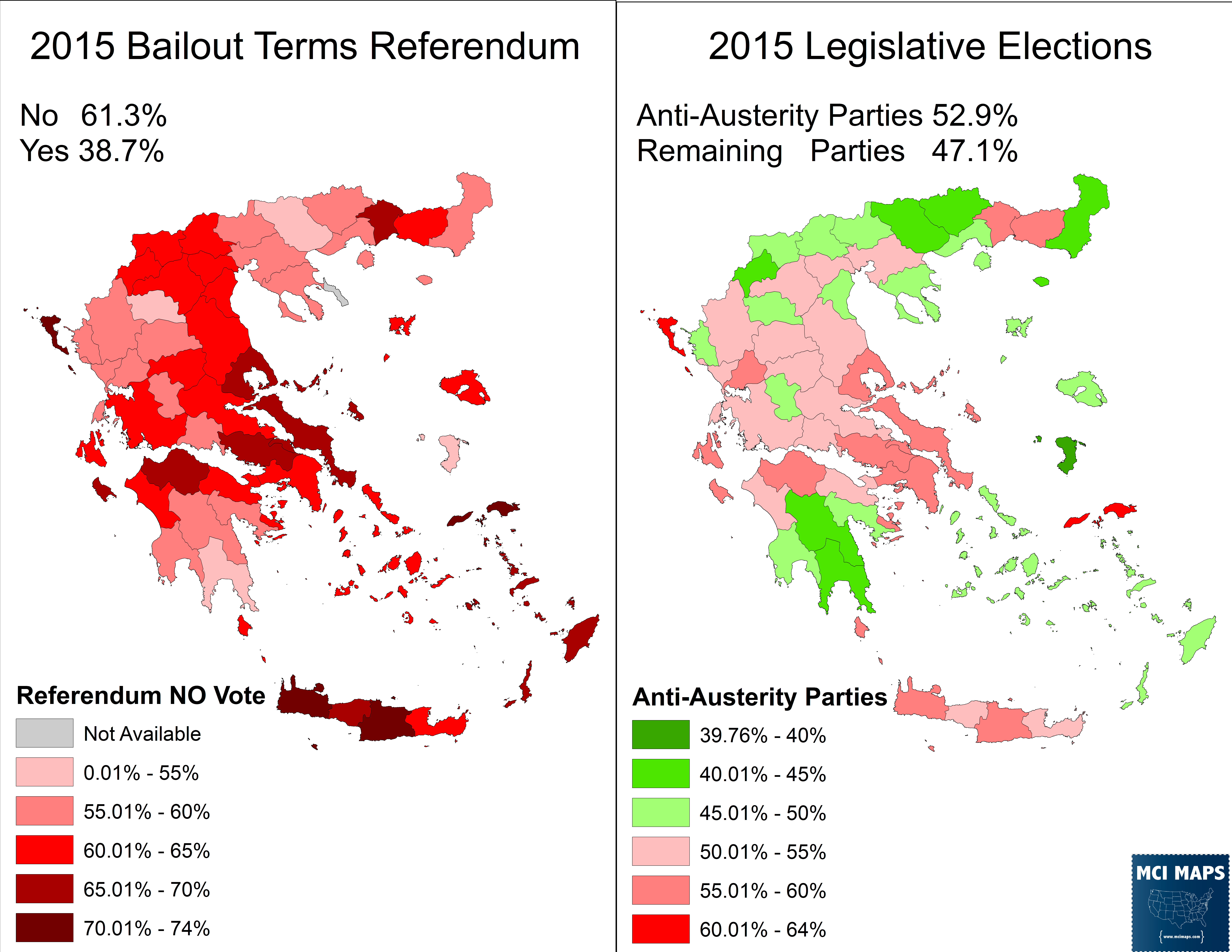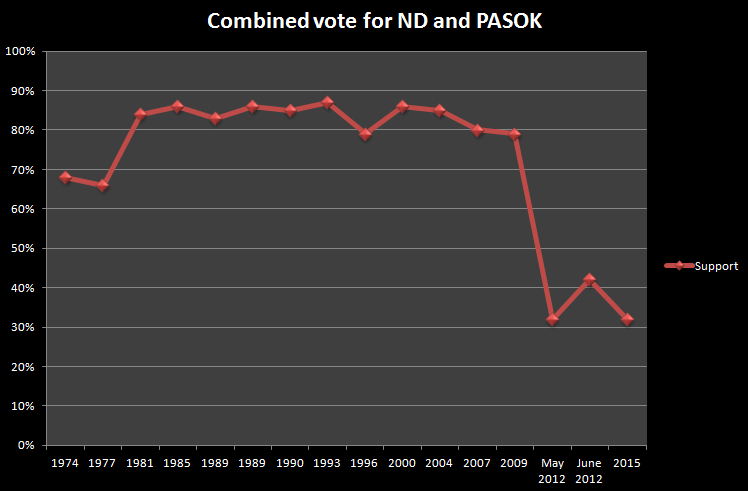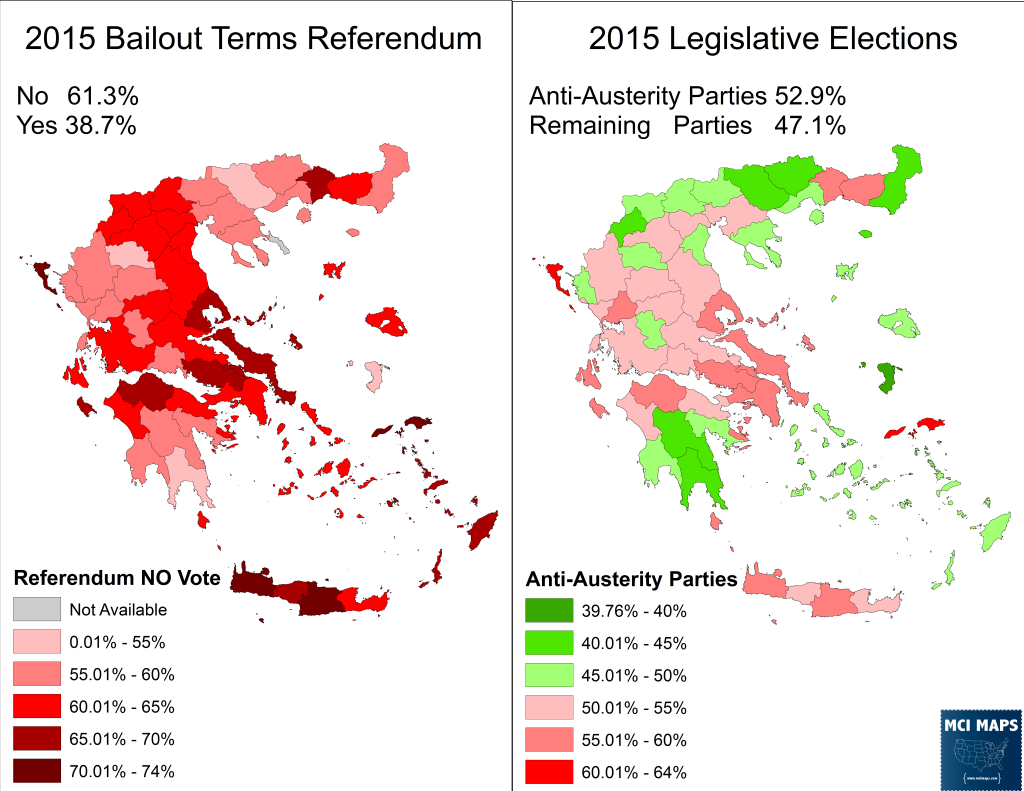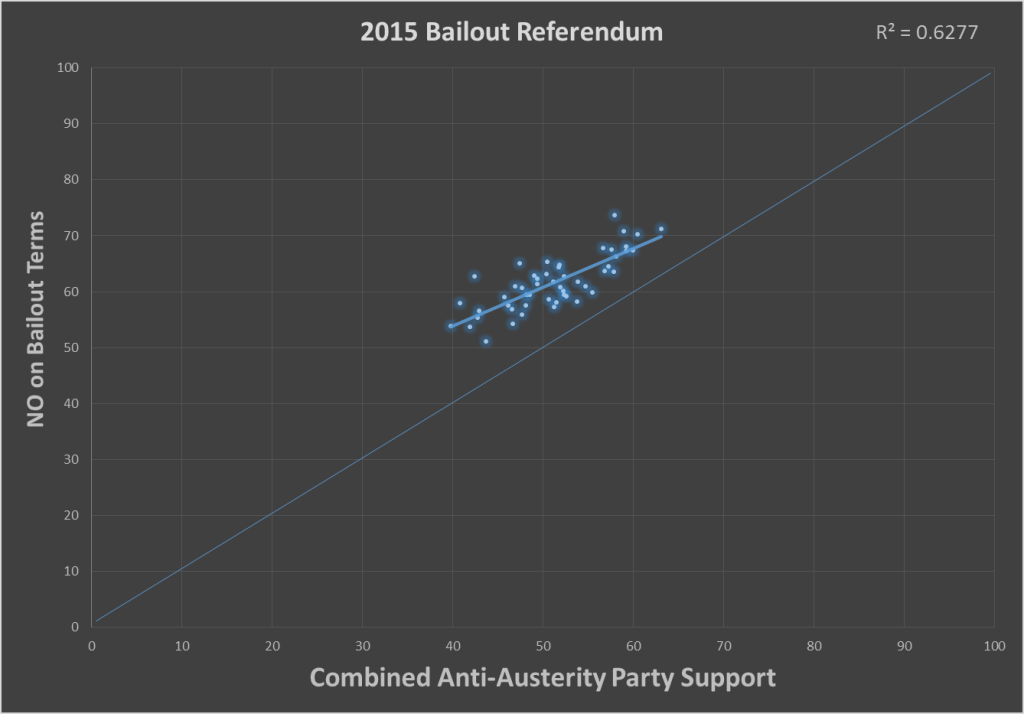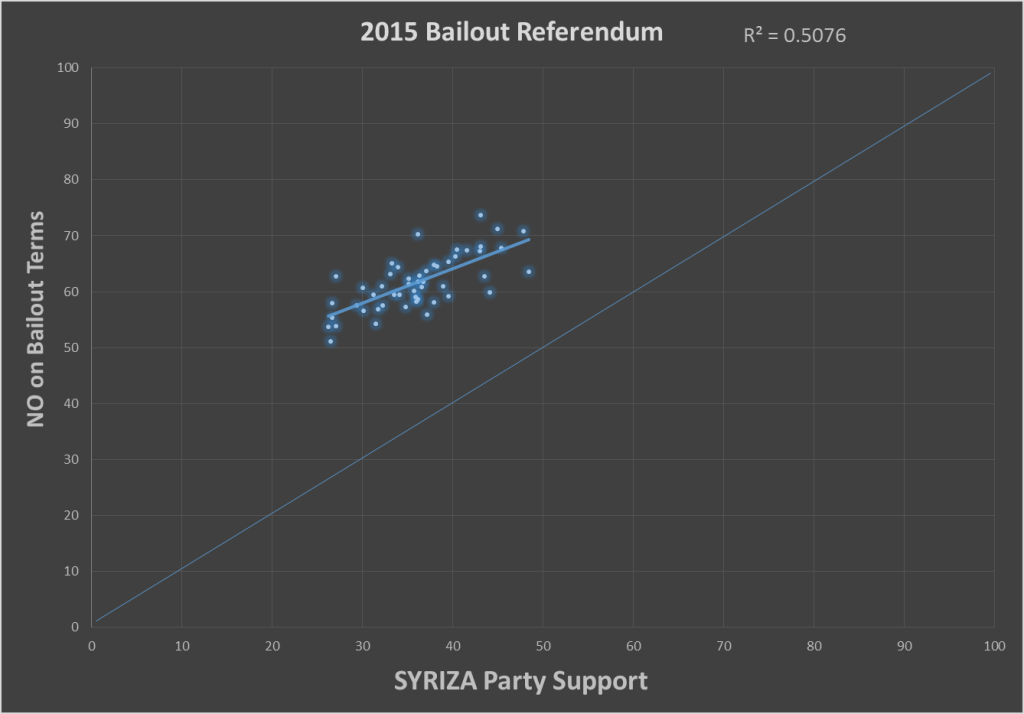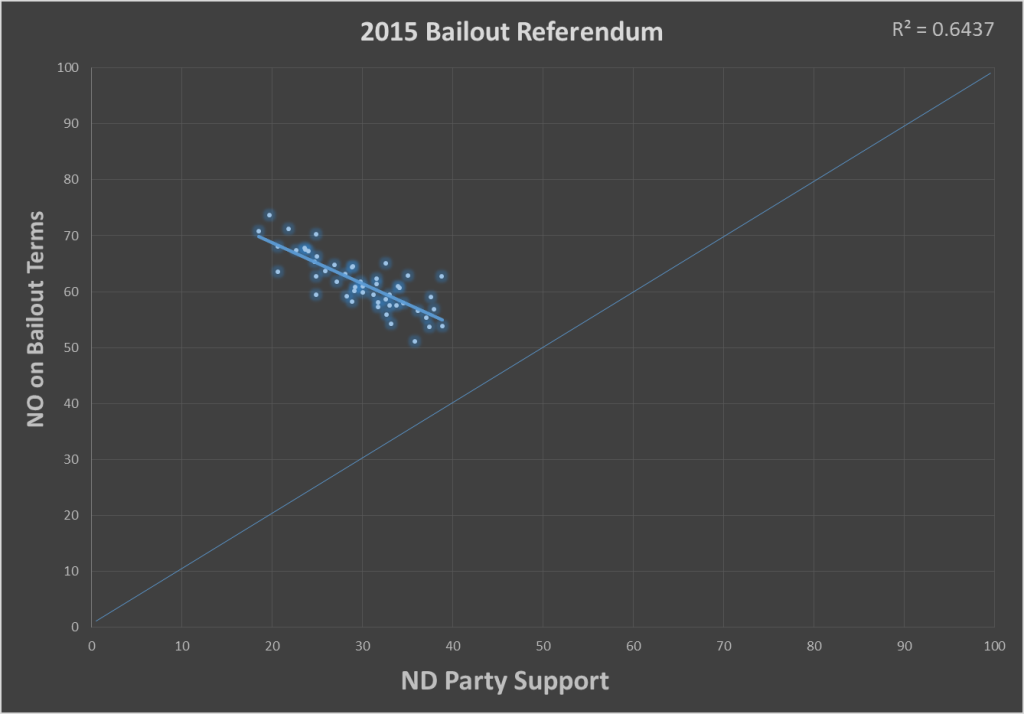Greece held its referendum on whether or not to accept the terms of its bailout from the European Commission, International Monetary Fund, and the European Central Bank. For years, Greece has gotten billions in bailout funds with conditions heavily rooted in austerity: deep social cuts and tax/fee increases. For the last several years, Greece has been forced to cut public works, pensions, and social programs. Meanwhile, Greece has been forced to raise taxes and fees on working and middle class voters; while proposed cooperate tax increases were not allowed by the IMF.
The rigid conditions placed on Greece have fostered a sense of anti-European and anti-austerity sentiment in the country. Citizens have complained about the major European powers, notably Germany, dictating the policy conditions that Greece has been forced to adhere to in exchange for bailout funds. The argument has been that such dictations are anti-democratic.
The economic conditions in Greece continue to be extremely poor thanks to the forced austerity measures. Unemployment hovers around 25%, poverty rates are high, and businesses have been shuttering constantly. The conditions have lead to a collapse of the old party system in Greece. For decades, the center-right party, New Democracy, and the center-left party, PASOK, have dominated elections. However, with both parties accepting the rigid bailout terms, their combined support began to collapse a few years ago.
As the graph shows, both parties amounted to over 80% of the votes cast until the chaotic 2012 elections. 2012 saw the rise of anti-austerity Parties that seized on the economic conditions of Greece. The socialist party, SYRIZA, came in second in the June 2012 snap election. Meanwhile, Golden Dawn, a scary pro-Nazi party, began to make gains by seizing on discontent and anti-immigrant sentiment.
In the January 2015 elections, SYRIZA gained 36% of the vote, the largest of any party, and was able to form a Coalition Government with another anti-Austerity Party, ANEL. SYRIZA did so well they secured 149 of the 300 seats, just two short of an absolute majority. This made Alexis Tsipras, a fierce opponent of austerity, Prime Minister.
Months of negotiations have led to stalemate between Greece and the European Powers. Europe has insisted on more austerity measures as a condition for more bailout funds. Greece just defaulted on its IMF payment last weak, stating simply that they did not have the money. Prime Minster Tsipras decided to put the conditions laid out by Europe up for a vote of the people. Tsipras vowed to accept the results, but that he would resign if the YES won, stating he would not help implement austerity measures. When voters went to the polls, they voted to reject the conditions with over 60% of the vote.
The map below shows the referendum results. Every electoral division rejected the the bailout conditions.
Next to the referendum I showed the results from the parliament elections that swept SYRIZA to power. I combined all the anti-austerity parties together: SYRIZA, Golden Dawn, KKE, and ANEL. Note this only includes parties that won seats in parliament.
The scatter-plot below compares the NO vote on the referendum to the support for the anti-austerity parties in the last election
There is a notable statistical correlation between the anti-austerity parties and the NO vote on the referendum. The NO vote outpaced the anti-Austerity parties in every district.
I also compared the NO vote with the support for the SYRIZA party in the January elections. The statistical correlation was slightly weaker, but still there.
Meanwhile, the referendum had a strong statistical correlation with support for the right-of-center New Democracy party, which is the second largest party in Greece. In this case, the stronger New Democracy did in the last election, the worse NO did in the referendum.
This shows that many New Democracy supports favored the bailout agreements, either due to conservative economic views or a desire to stay in the Eurozone.
No other parties, most of them getting small percentages in the last elections, had a strong statistical relationship with the referendum results.
A good deal can be said for what may happen next. Greece may leave the Eurozone. If there is a deal to be worked out between Greece and the European banks/powers, those institutions should look carefully at these results. Many of the European power players have complained about Tsipras and how hard it has been to negotiate with him. However, the referendum results show the Greek people stand with their Prime Minister and the anti-austerity forces. If the rest of Europe wants to work out a deal, they need to stop using the Prime Minister as a scapegoat and realize the Greek voters will not accept stringent austerity anymore.

